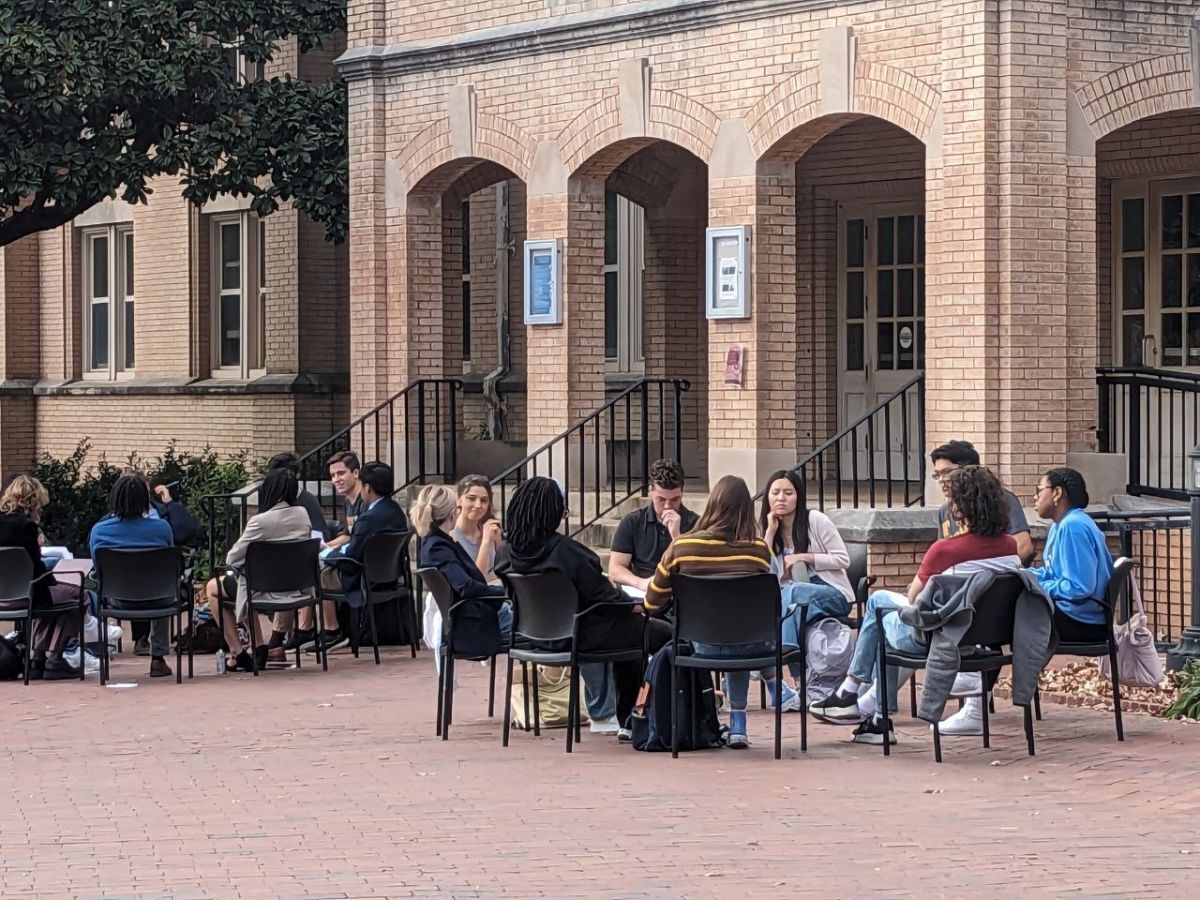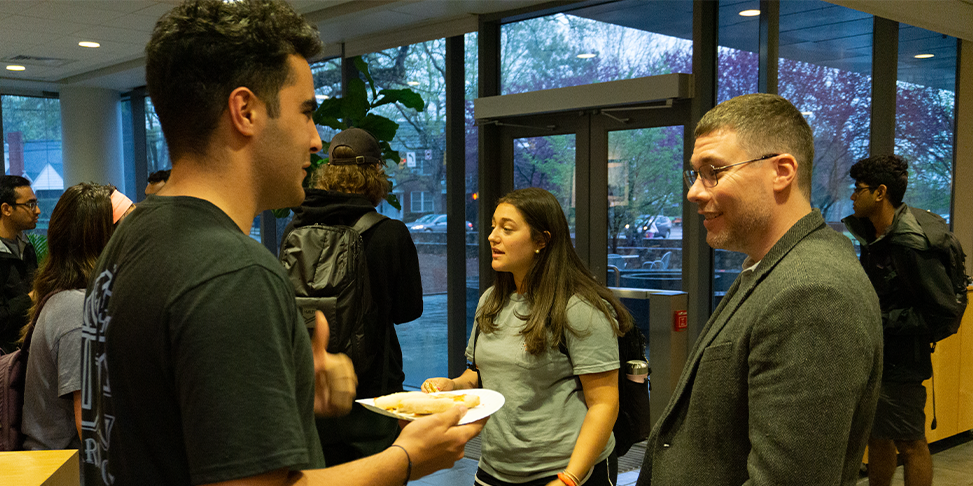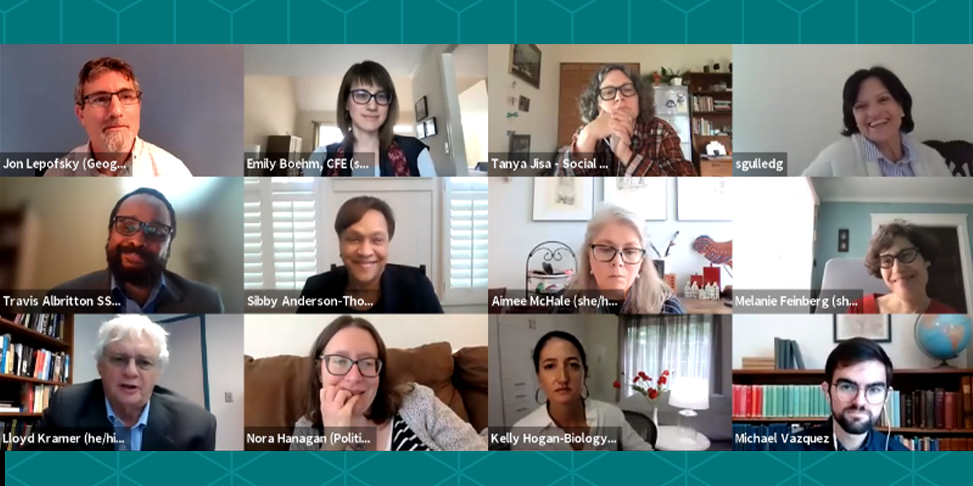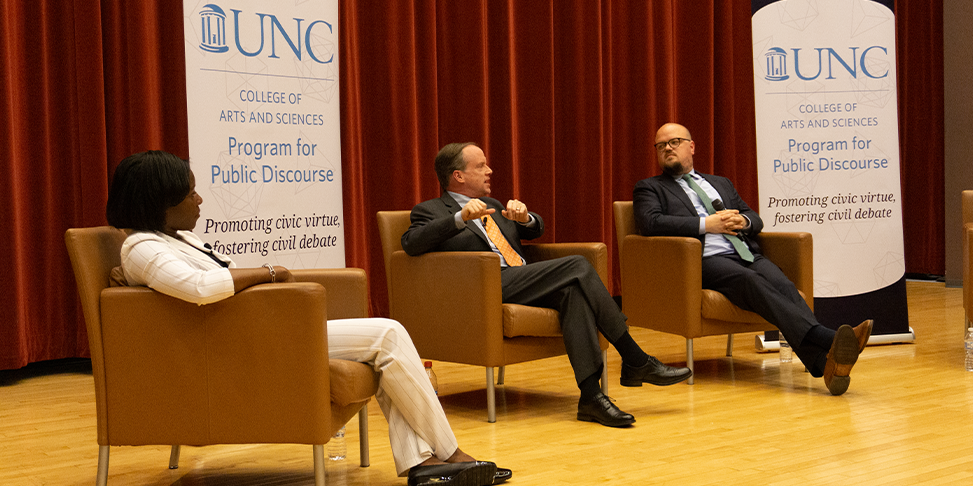Home
Agora Fellow 2024-2025 Application

The Program for Public Discourse welcomes applications for the 2024-2025 Agora Fellowship. The Agora comprises a cohort of undergraduate students committed to the study and practice of public discourse. Fellows learn rhetorical concepts as they engage challenging topical issues throughout the year. They also develop facilitative techniques to host monthly deliberative forums for the student body. Fellows convene the first three weeks of each month throughout the academic calendar. Typically, up to ten students are accepted into the incoming cohort. We are no longer accepting applications.
Upcoming Events

Agora Fellows
The Agora Fellows program provides undergraduate students a space to experiment with public discourse in a collaborative environment of their peers.
Become an Agora Fellow

Faculty Resources
We invite all faculty to schedule faculty consultations or participate in our seminars and workshops.
Go To Faculty Resources

Events
We seek to offer the broader UNC community and general public perspectives on important issues that they may not otherwise get on campus.
View Upcoming Events
View Events Archive
